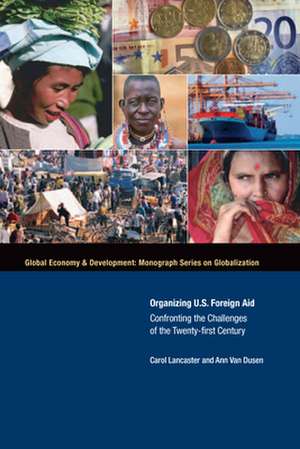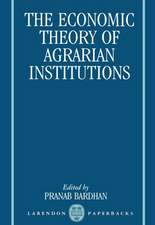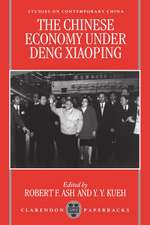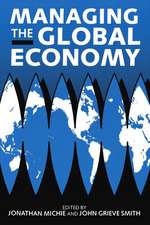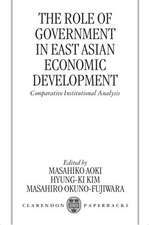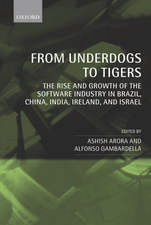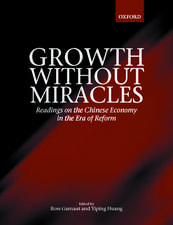Organizing U.S. Foreign Aid: Confronting the Challenges of the Twenty-First Century
Autor Carol Lancaster, Ann Van Dusenen Limba Engleză Paperback – 8 iul 2005
Overwhelmed by a proliferation of foreign aid programs, the U.S. government is attempting to reorganize itself in order to manage them more effectively. This raises several critical issues that will shape U.S. foreign aid policy for the 21st century: Should existing foreign aid agencies be combined into a cabinet-level agency, ensuring a voice for development concerns during policy discussions, or should they be placed in the State Department to strengthen their foreign policy focus? How should aid agencies manage the planning, implementation, and evaluation of their aid? Is "managing for results" as currently practiced appropriate for what is often a highly experimental task of bringing about beneficial changes in foreign countries? How should the U.S. government educate its citizens on the issues of foreign aid and development as expenditures rise and as the ambitious goals driving aid—including nation building—expand? In Organ izing Foreign Aid, Carol Lancaster and Ann Van Dusen call for a fundamental reorganization of U.S. aid programs. They recommend a major increase in efforts at development education. The authors also provide insights into how other donor governments have dealt with these challenges. With the future of U.S. foreign aid policy at stake, this book will be essential reading for anyone interested in development, foreign aid, and the organization of government programs in these areas.
Preț: 154.71 lei
Nou
Puncte Express: 232
Preț estimativ în valută:
29.61€ • 32.15$ • 24.87£
29.61€ • 32.15$ • 24.87£
Carte tipărită la comandă
Livrare economică 23 aprilie-07 mai
Preluare comenzi: 021 569.72.76
Specificații
ISBN-13: 9780815751137
ISBN-10: 0815751133
Pagini: 78
Ilustrații: Illustrations
Dimensiuni: 152 x 229 x 6 mm
Greutate: 0.17 kg
Editura: Brookings Institution Press
Colecția Brookings Institution Press
Locul publicării:United States
ISBN-10: 0815751133
Pagini: 78
Ilustrații: Illustrations
Dimensiuni: 152 x 229 x 6 mm
Greutate: 0.17 kg
Editura: Brookings Institution Press
Colecția Brookings Institution Press
Locul publicării:United States
Notă biografică
Carol Lancaster is a visiting fellow at the Center for Global Development; director of the Mortara Center for International Studies at Georgetown University's School of Foreign Service; and a former deputy administrator of the U.S. Agency for International Development.
Ann Van Dusen had a long career as a senior career officer at USAID before joining Save the Children as its chief operating officer and subsequently Enterprise Works WorldWide as its interim CEO.
Ann Van Dusen had a long career as a senior career officer at USAID before joining Save the Children as its chief operating officer and subsequently Enterprise Works WorldWide as its interim CEO.
Descriere
Overwhelmed by a proliferation of foreign aid programs, the U.S. government is attempting to reorganize itself in order to manage them more effectively. This raises several critical issues that will shape U.S. foreign aid policy for the 21st century: Should existing foreign aid agencies be combined into a cabinet-level agency, ensuring a voice for development concerns during policy discussions, or should they be placed in the State Department to strengthen their foreign policy focus? How should aid agencies manage the planning, implementation, and evaluation of their aid? Is "managing for results" as currently practiced appropriate for what is often a highly experimental task of bringing about beneficial changes in foreign countries? How should the U.S. government educate its citizens on the issues of foreign aid and development as expenditures rise and as the ambitious goals driving aid—including nation building—expand? In Organ izing Foreign Aid, Carol Lancaster and Ann Van Dusen call for a fundamental reorganization of U.S. aid programs. They recommend a major increase in efforts at development education. The authors also provide insights into how other donor governments have dealt with these challenges. With the future of U.S. foreign aid policy at stake, this book will be essential reading for anyone interested in development, foreign aid, and the organization of government programs in these areas.
